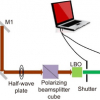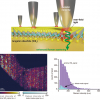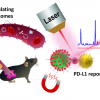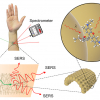A new test for prostate cancer using Raman spectroscopy could be “pivotal” in providing more accurate diagnosis, easing the suffering of patients and saving lives, according to the team behind the research. Professor Ihtesham Rehman, Chair in Bioengineering at Lancaster University, has previously investigated using Raman spectroscopy to identify various different cancers and believes the tool could be transformative in diagnosing prostate cancer, and helping provide an accurate picture of the cancer’s development and required treatment pathway.
The current test for prostate cancer involves an unreliable prostate-specific antigen (PSA) blood test followed by an MRI and, ultimately, a painful biopsy. This invasive procedure can deter patients from taking the test and prevent early diagnosis of the disease, which could save the patient’s life. Professor Rehman said: “the PSA blood test is unreliable and an MRI scan can miss important cancers, especially in younger men and where the cancer is located in certain areas of the prostate. These tests are currently followed by uncomfortable prostate biopsies which carry a risk of severe infection and bleeding, but may still miss significant cancers.”
“We hope this study will allow us to better understand Raman spectroscopy’s performance in identifying new molecular biomarkers in biofluids and improving diagnostic accuracy and monitoring of prostate cancer, and thus allow us to consider real-time use of this tool in a clinical setting.”
Professor Alison Birtle, Consultant Oncologist at Lancashire Teaching Hospitals NHS Foundation Trust, added: “this is a really exciting project. We currently have various tests for prostate cancer which are imperfect and don’t give the level of detailed information that Raman spectroscopy could. For instance, this could not only identify the presence of cancer but also at what stage the cancer is at and how we need to treat it at that time.”

















